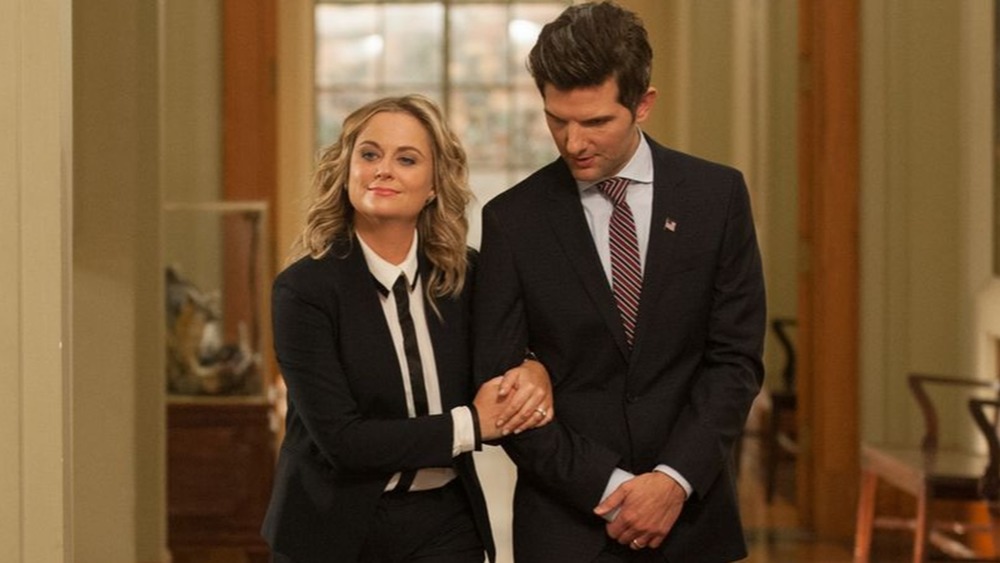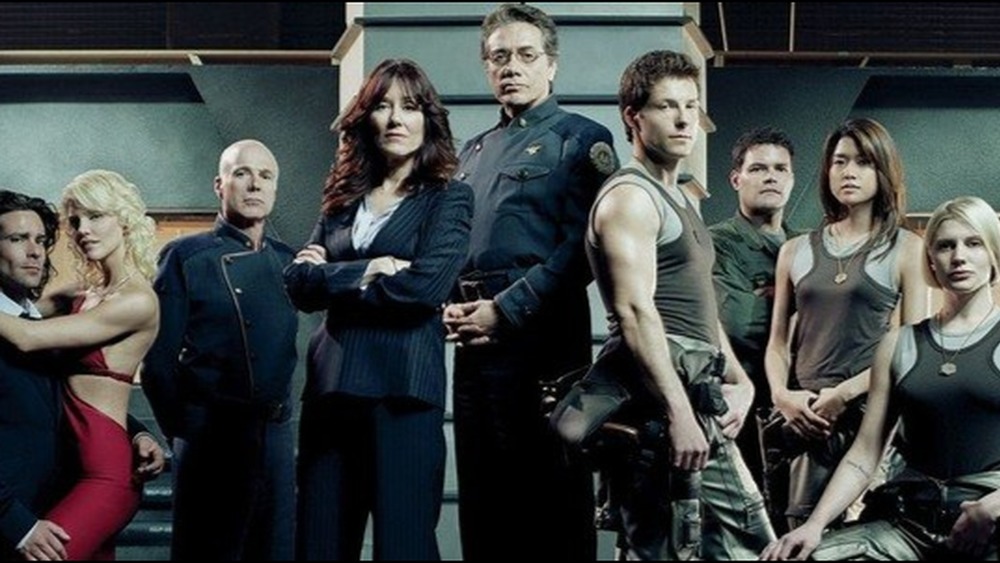The Surprising Sci-Fi Classic That Influenced Parks & Rec's Final Season
On April 9, 2009, NBC unveiled what would become one of its most popular original programs to date: Parks and Recreation. The merchandise-spawning political comedy quickly found its legs and won over audiences with its well-timed gags, The Office-esque presentation, cast of endearing characters, and fistfuls of quirky charm. As a result, the program managed to last 7 seasons spanning a total of 125 episodes before it wrapped up in 2015. Unsurprisingly, many viewers weren't ready to leave the fictional Pawnee, Indiana, leading the showrunners to make a very interesting choice to end the story on the highest note possible.
In order to give Parks and Rec die-hards the finale the fans deserved — and to ensure Amy Poehler didn't suffer any headaches while working with infants (via Vulture) — the creative minds behind the show elected to include a time-jump at the end of season 6. This afforded them the chance to cover what happened to each member of the Pawnee Parks Department's staff later in their lives, and treat the season as an extended epilogue. Of course, they didn't pick this idea out of thin air, but rather found inspiration in one of the science fiction genre's biggest soon-to-be-rebooted triumphs of the past two decades.
Parks and Rec's finale took inspiration from Battlestar Galactica's time jump
During an appearance on the Daily Beast podcast, The Last Laugh, Parks and Recreation creator Michael Schur touched on the behind-the-scenes process that went into writing the hit show's final season. As he explained, picking up where the sixth left off proved no easy task, especially as the series finale inched closer. However, he felt the only logical course of action was to take a similar approach to that of a sci-fi mainstay. "we had sort of primed our pump by doing a thing at the end of the previous season where we jumped ahead three years, sort of like inspired by Battlestar Galactica at the time."
Back in 2006, the iconic show shifted forward in its timeline in the episode "Lay Down Your Burdens," going a long way in popularizing the time jump as a storytelling device. It allowed the writing team to focus on each character and the changes they'd gone through off-screen, reinvigorating the story as a whole, which is something Schur wanted for Parks and Rec and its cast. "You slowly pushed in on a character and then pulled out," he said, "And it was a year later, which I thought was so cool and revelatory."
Additionally, he mentioned that, while the timeline shift turned out for the best, it wasn't exactly in the cards from the very beginning. In fact, "[they] didn't know at that moment at the end of season 6 exactly what [they] were going to do. But ... when [they] were planning the finale, [they] thought, 'well, we've already done this thing where we leaped into the future a little bit and ... it sort of gave us a little creative spark.'"
Most fans would agree that Schur's bold creative decision paid off. Parks and Recreation's emotional last season hit all the right notes, and fans will forever have Battlestar Galactica to thank for it.

